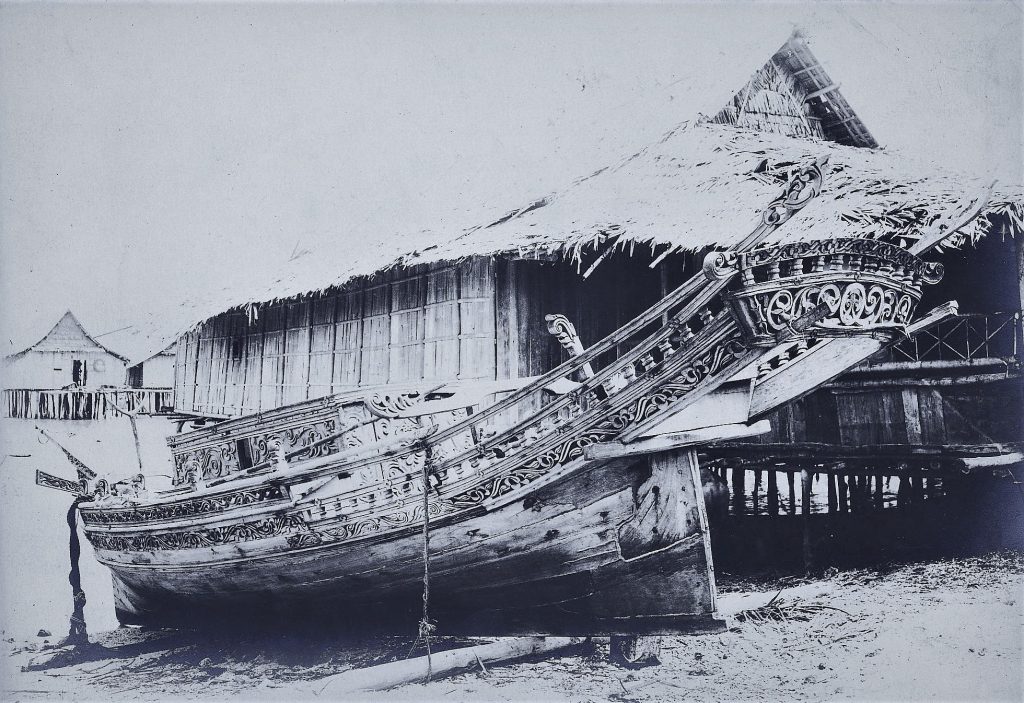By Kateryna Savelieva
At the beginning of June 2021, an online seminar Parents in Academia was organized at the Helsinki Collegium for Advanced Studies. Over 70 participants from the University of Helsinki and other institutions took part in the event (a detailed account is available for University of Helsinki employees on the Flamma intranet of the University of Helsinki).

Karolina Grabowska / Pexels
When the initial idea of the seminar occurred to me, I went to our deputy director Hanne Appelqvist to discuss it, not knowing where it may lead me or even in which format it could be held. But thanks to the support from the Collegium office (director Tuomas Forsberg, deputy director Hanne Appelqvist, and research coordinator Kaisa Kaakinen), and to the willingness and enthusiasm of the invited speakers, the seminar was organized at short notice and gave rise to a fruitful and multifaceted discussion. It also evoked some thoughts in me on work–family balance in academia, which I would like to share here.
The invited speakers were
Hanna Snellman (Professor and Vice Rector, University of Helsinki),
Anna Rotkirch (Research Professor and Director of the Population Research Institute, Väestöliitto),
Tuomas Forsberg (Professor and Director of HCAS),
Veronica Walker Vadillo (Postdoctoral Researcher, University of Helsinki),
Christian Hakulinen (University Lecturer, University of Helsinki).
The organizer and moderator was Kateryna Savelieva (Postdoctoral Researcher and Core Fellow, HCAS).
WHY DO YOU WANT TO WORK IN ACADEMIA?
The core question every academic must ask themselves is: why do you want to work in academia? Do you have a clear sense of how scientific career looks like and which potential challenges you are likely to face? Academia is hard, and it is hard for both men and women, with or without children. However, women with children are still likely to face more difficulties in academia compared to men, women without children, or even men with children (for example, see Morgan et al., 2020). So, before even raising a question of how to combine parenthood and academia, you need to be sure about your motivation for staying in academia. As the panelists pointed out, it is really important to follow your passion and enjoy your work. Otherwise, you can drown in the constant writing of grant applications, deadlines to fulfil and revisions to complete, numerous rejections, and periods of prolonged silence from journals, funding committees or other evaluators.
What is more, academia is extremely time-consuming, as is parenthood, especially when children are still young. There is a common perception that if you want to be a serious scientist, you need to dedicate all your time to it. Hence, parenthood is often not a viable option, and this is especially true for women. Many female academics believe that not having children is a necessary condition for academic success (Ward and Wolf-Wendel, 2012). As a result, female PhD students or young postdocs with children decide to leave academia more often than their childless colleagues (Mason, 2013).
However, given that many highly successful academics have many children in Finland, it must be possible to combine parenthood with an academic career. Indeed, the invited speakers are good role models for just that. Especially, when we distinguish people who leave academia for truly work–family reasons from those who use parenthood as an excuse to leave the profession they do not like anyway, it may seem that being an academic and a parent is less challenging than the typical perception suggests.
DO YOU REALLY WANT TO HAVE CHILDREN?
The other question to ask is whether you want to have children. And if yes, how many and when. In academia, there is never a “good time” to have children, in a sense that taking care of children, especially when they are still very young, is time-consuming.
Some would argue that the best time for having a first child is when one is working on a dissertation or approaching its defence. In fact, the prime time for childbearing for women usually coincides with the time they are working on their dissertation, given that the median age of entering a PhD programme is 29 years among the OECD countries (31 years for Finland) (OECD, 2019). Others will argue that having children when working on your dissertation is either so stressful that it is better to postpone childbearing to better times or to first acquire all the necessary research and only then have children.
Moreover, young researchers usually work on fixed-term contracts or personal grants and thus are in an especially vulnerable situation when deciding to take a family leave. However, if one waits until having a more secure position in academia, it may be too late to have children. So, the decision when to have children depends on one’s current situation and there are no ready recipes for that.
HOW TO ACHIEVE WORK–FAMILY BALANCE?
After you have honestly answered these two questions and decided that both academic career and parenthood are important to you, how can you combine both? Of course, one will have to construct one’s own list of practices that work best for one, but we can also learn from the experiences of others, such as the invited speakers of our seminar, all of whom have children and successful careers in academia.
First, rethink your usage of time. All speakers addressed this topic from different perspectives. To succeed in both academia and parenthood, efficient time management is crucial. As Tuomas Forsberg suggested, you need to figure out what the most productive time of day is for you and use that time optimally. According to Anna Rotkirch, it is also important to appreciate the value of your time: this could mean cutting back on some activities (such as social media or watching TV) or outsourcing others (for example, cleaning or cooking). What is more, she also highlighted that you should remember to secure some time for yourself and not to reduce any activities that are a source of energy and well-being for you (e.g., exercising). Furthermore, although several days of uninterrupted work in a row are sometimes needed to complete some work, doing your work during working hours and saving some time solely for your family is a good idea.
Second, redefine your definition of success. Veronica Walker Vadillo raised an interesting topic of redefining your personal definition of success to achieve work-family balance. When you become a parent, the definition of success for you may suddenly expand: you now have not only an academic field in which you can achieve certain things, but also a whole new world of a family, in which you can be very successful. Parenting means that it is not only academic achievements that defines your success, but your relationship with your children defines this success as well. Parenthood brings inevitable changes to one’s life and identity, which should be embraced and cultivated.
Third, do not set the bar of good parenting too high. Currently, there are high expectations of good parenting (the so-called intensive parenting) and heavy investment in children (e.g., Craig et al., 2014). It is expected that if you are a parent, then you must focus on parenting 100%, 24/7. This is hardly comparable with one’s career and creates many demands for parents, which is often one of the reasons why people decide to postpone childbearing. It is good to remember that children do not need you 24 hours a day, but they do need you consistently, especially young children. It is better to spend 2 hours a day with a child, but spend them fully, than to spend 12 hours around a child while being constantly distracted by other activities.
Finally, make use of the available policies at your university. As already mentioned, young researchers usually work on fixed-term contracts, which put them in especially vulnerable position when they take a family leave. University of Helsinki offers paid family leaves and, as a rule, recommends extensions of fixed-term contracts for its employees (including doctoral students). As Hanna Snellman pointed out, this should be always negotiated and documented with one’s supervisor or head of the unit and HR personnel. Also, Christian Hakulinen reminded us that having good collaborators is an advantage when one is taking a family leave, because they are a source of support: it will help you to stay productive in research, and it will be easier to return to research work after a long family leave.
All in all, although it is challenging to be both a successful academic and a parent, it is surely possible and incredibly fulfilling. There are excellent role models for that, and hopefully, there will be even more in the future.
REFERENCES
Craig, L., Powell, A., and Smyth, C. (2014). Towards intensive parenting? Changes in the composition and determinants of mothers’ and fathers’ time with children 1992-2006. The British Journal of Sociology, 65(3): 555–579. doi: 10.1111/1468-4446.12035
Mason, M. A. (2013). In the Ivory Tower, Men Only. For men, having children is a career advantage. For women, it’s a career killer. Retrieved from the Slate website: https://slate.com/human-interest/2013/06/female-academics-pay-a-heavy-baby-penalty.html
Morgan, A. C., Way, S. F., Hoefer, M. J., Larremore, D. B., Galesic, M., & Clauset, A. (2021). The unequal impact of parenthood in academia. Science Advances, 7(9), eabd1996.
OECD/UIS/Eurostat (2019). Education at a Glance 2019. Section B7. What are the characteristics and outcomes of doctoral graduates? https://doi.org/10.1787/f8d7880d-en
Ward, K., & Wolf-Wendel, L. (2012). Academic motherhood: How faculty manage work and family. Rutgers University Press.
